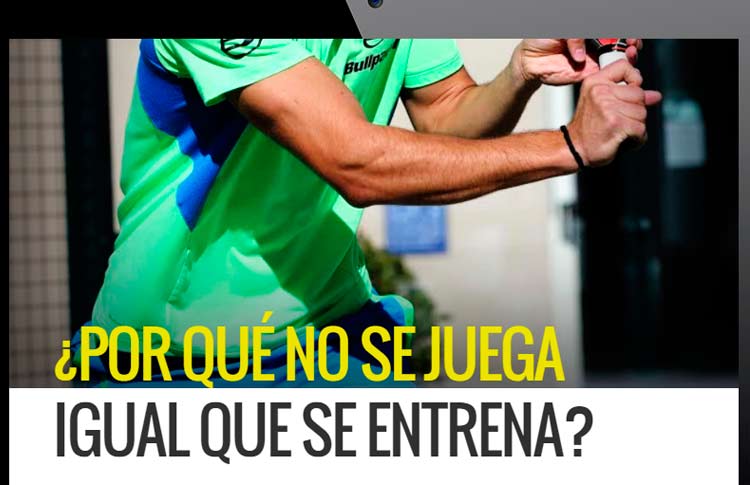Padel World Press .- The result objectives make the focus inappropriate and place the players in a scenario of changing emotions and dependent on a marker that, on occasions, favors us and on others makes us have a hard time.
Training and competition are two different scenarios. In the first scenario, attention, motivation and attitude are very important, aspects that are also very important in the competition but in a different way. The difference is in the emotional aspect and that is where it is difficult for both scenarios to overlap.
When we train, the attention of the players is focused on performance; in the competition it focuses on the result. When training, athletes pay attention to what they are doing at that moment and worry about trying to do it well without thinking about the consequences; In competition, they are fundamentally concerned with the consequences of what we are doing and that is what causes us to lose attention, precisely, on what we are doing.
To give an example of paddle tennis: A player trains the tray thinking about how he has to position himself, he focuses on hitting the ball and releases the shot automatically and naturally... It is possible that that same player in a match, when making the layup, is thinking about the consequences that it entails a possible error of the same and lose attention and precision in its execution. For this reason, we can ensure that the emotional components are not the same in training as they are in competition, and that is why most players, especially the younger ones, train better than play.
But analyzing this situation two questions occur to me:
Do not you think that this difference is totally psychological? Do you think you could get to play at the same level you train?
I'm sure so. We just have to achieve one thing: not to think about the consequences of each stroke or each play but rather to pay attention to where I want to direct the ball and hit it naturally, to focus on the game's tactics and not on the consequences that we do not out. Only then will we be able to match performance in competition with performance in training.
Another way to try to ensure that the difference in play in training and competition is not very different is to try to use in the sessions the emotional components that are similar to those that we are going to find in competition... That is, if we cannot Avoid thinking about the consequences of our blows when we are competing, let's try to transfer this situation to training and let the athlete train thinking about the consequences of each type of hit, of each play, as occurs during the dispute of a game.
The coaches of the players with whom I collaborate base part of their training on this system and manage to create a climate of tension and psychological pressure in many of the exercises they carry out.
In this way, training situations are as similar as possible to competition situations, not only from a technical-tactical point of view but also, and above all, from an emotional point of view.
As a summary: Let's say then that we have two solutions so that performance in competition is as similar as possible to performance in training, or try so that, in competition, we don't think too much about the consequences of what we do but rather about the the very process of doing so, or trying to create situations of pressure and tension in training so that the players get used to having a good performance in those circumstances and in a match maintain that same level.
Óscar Lorenzo García
* You can follow all the news of the world of paddle in our profiles of Facebook y Twitter as well as subscribe to our Newsletter .
